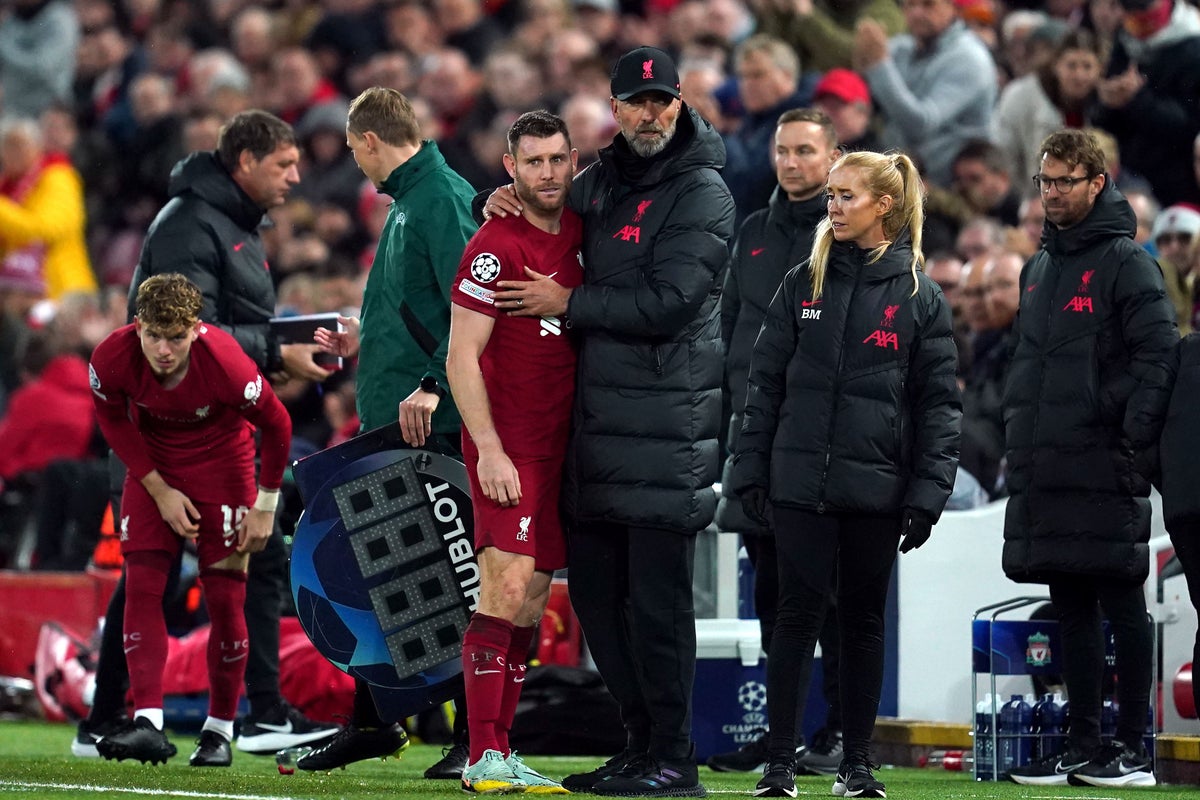
Football’s “stubbornness” towards dealing with head injuries is endangering the health of players, a brain injury charity has said.
Headway highlighted the inconsistency around how such injuries are treated, citing the cases of Tottenham’s Son Heung-min and Liverpool’s James Milner in Champions League matches on Tuesday night.
While the South Korean forward was substituted after a clash in Spurs’ match against Marseille, Milner played on after suffering a head injury against Napoli before coming off in the 48th minute.
It followed an incident in the Premier League last weekend where Aston Villa goalkeeper Emiliano Martinez was initially allowed to play on, despite suffering a head injury in his side’s match against Newcastle.
He eventually succumbed to the injury and was replaced by a concussion substitute.
Luke Griggs, Headway’s deputy chief executive, said: “The assessment of players for potential concussion remains extremely challenging for medics.
“They are not helped by football’s continued and unjustifiable reluctance to introduce temporary concussion substitutes that would enable extended assessments in the quiet confines of a dressing room, away from the intense atmosphere of the pitch.
“We have repeatedly warned football of the risk it is taking with the short and long-term health of players.
“If in doubt, sit it out’ is supposedly at the heart of concussion protocols in all sports. And yet too often we see teams fail to take that approach.
Football’s stubbornness to accept the clear evidence that has emerged in recent years can no longer be tolerated— Luke Griggs, Headway deputy chief executive
“Instead, the approach seems to be ‘let’s see how they get on for the next 15 minutes’, during which time they risk exacerbating the effect of the initial injury.
“Football’s stubbornness to accept the clear evidence that has emerged in recent years can no longer be tolerated.”
The Professional Footballers’ Association issued a statement on Monday calling for trials of temporary concussion substitutes, and urging UEFA to introduce permanent concussion substitutes to its competitions.
Dr Adam White, the head of the PFA’s dedicated brain health department, stated: “Put simply, the current laws of the game are jeopardising player health and safety.”
Under Uefa’s head injury procedure, a player suffering an injury which requires assessment for a potential concussion will only be allowed to continue playing if the team doctor expressly confirms to the referee that the player is fit to do so.
The procedure calls for a referee to stop the match in the event of a suspected concussion to allow an assessment of the player by the team doctor.
The assessment should take no more than three minutes, and if the assessment has not concluded and/or the suspicion of concussion arises, the player should be substituted.
Uefa has also set up a concussion charter which clubs and national teams in men’s and women’s competitions have been encouraged to sign up to.
European football’s governing body trialled permanent concussion substitutes at the men’s Under-21 Championship in Hungary and Slovenia last year.







